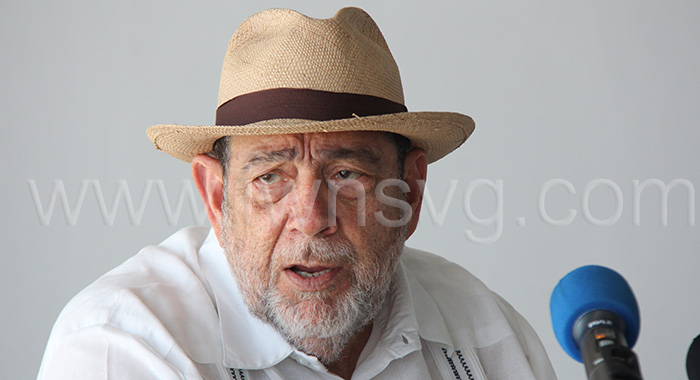Prime Minister Ralph Gonsalves says incurring national debt is necessary to prevent deaths following the impact of Hurricane Beryl.
The category 4 cyclone killed at least six people in St. Vincent and the Grenadines when it battered the country on July 1.
Further, it damaged 95% of buildings in the southern Grenadines and knocked out the electricity grid on Canouan, Mayreau and Union Island.
Gonsalves noted that his government will bring to Parliament on Thursday EC$140 million in supplementary estimates in response to the damage caused by the cyclone.
He noted that the estimates are supplementary to the EC$1.6 billion budget for 2024 that Parliament approved in January.
“So you’re not starting at zero; you start with a base. But this is something which is additional.”
He said that the government will also on Thursday ask lawmakers to increase the overdraft limit by about EC$25 million, adding that the government will also ask Parliament to increase the ceiling for loans “by about $75 million.
“The truth is this, … in this particular phase, we have to spend additional monies and we have to borrow the money.”
The prime minister said there has been “some generosity” in the relief period, evidenced by contributions of sums including US$200,000.
“And we are grateful. But the truth is this, the relief, cleaning-up period cause many, many more, many times what we get in these very important gifts.”
He, however, said there are some monies, like those negotiated with the Caribbean Development Bank that will allow the government to spend some monies in advance and reclaim it.
“Similarly what we’re negotiating with the World Bank,” Gonsalves said, noting that the moneis from the CDB and the World Bank will not be grants.
“they’d be soft loans,” Gonsalves said, adding, “So, the debt will increase as it increased after COVID and after the volcanic eruptions.
“But since the volcanic eruptions, our economy has been on a robust growth path and we collect more revenues and thus being able to deal with the debt, and the debt-to-GDP is moderated because of the extent of economic growth,” Gonsalves said, adding that the economy will grow again.
“And we are doing things right now to make the economy grow. But there are real challenges,” he said, adding that his government has a lot of experience managing natural disasters.
“You have to do certain things immediately. And then you have a medium-term trajectory in relation to the debt to make sure it’s manageable…
“I can’t say that I’m not going to incur any more d-e-b-t. But the result of not doing that, I have a lot of d-e-a-t-h-s. I can’t be so worried about d-e-b-t-s, debts, that I facilitate d-e-a-t-h-s, deaths,” Gonsalves said.
He, hwoever, said there must be “a balance in prudence and enterprise always.
“And on this occasion, we have to make sure we are as enterprising as we possibly can be.”
The prime minister said that BRAGSA, the government’s general services agency, has to strengthen its administrative apparatus.
“Because just the management of these additional monies to keep your accounts properly, not only for yourself, but if you’re going to make a claim for the CDB to give you a refund, or the World Bank on anything which you outlay at the moment, you need to have proper accounts.”
The prime minister said that managing the relief is “many-sided.
“Some people talk about setting up separate institutions. Well, if you set up separate institutions, you’re only going to create more confusion. You have to work through established institutions, but make sure they’re staffed properly, and you have the proper coordination,” Gonsalves said.






